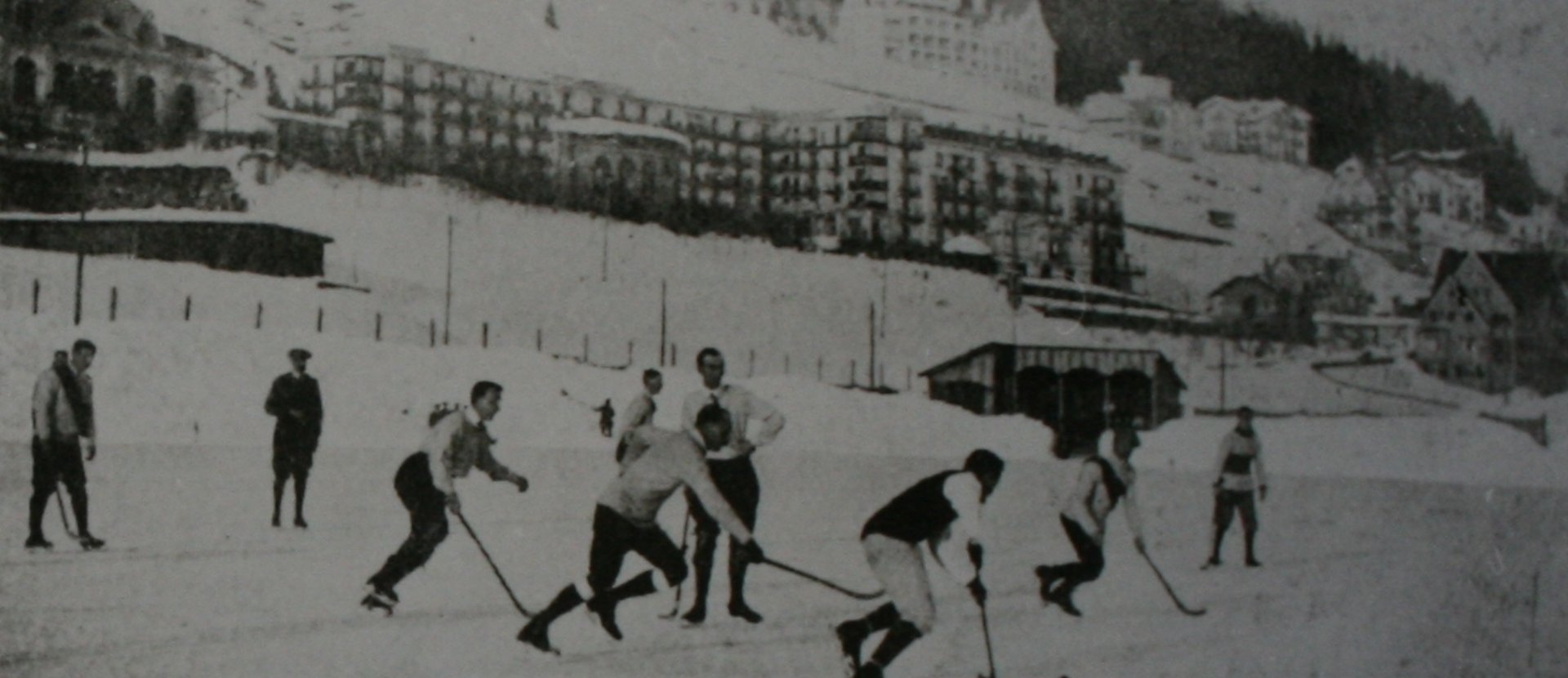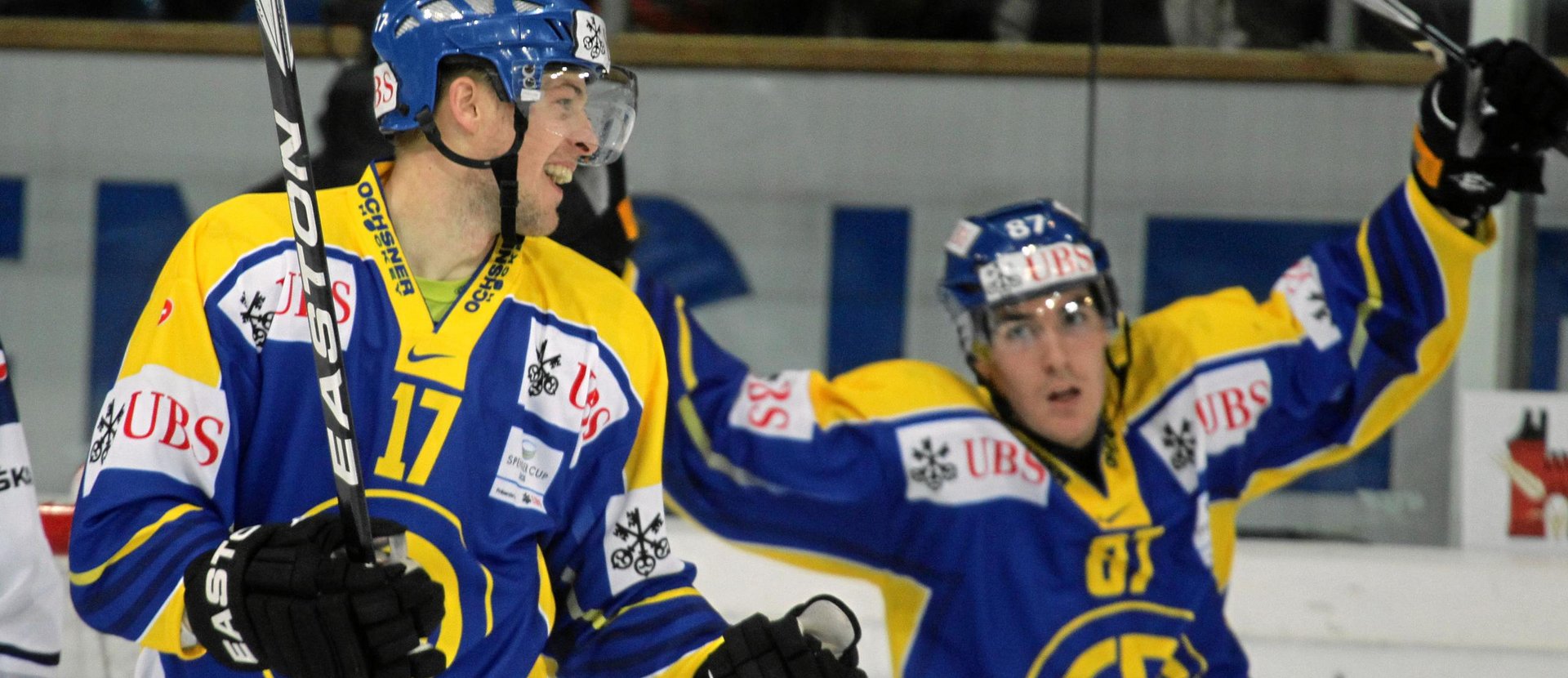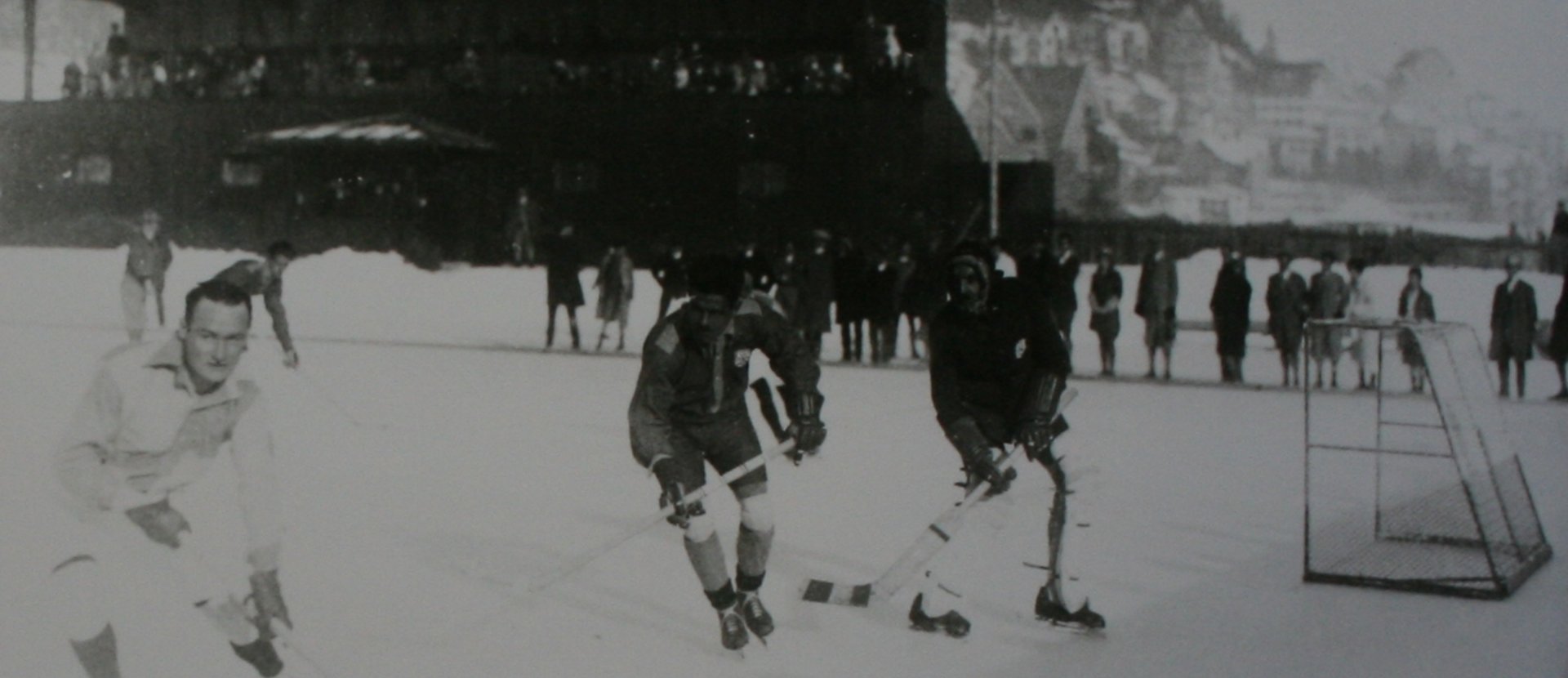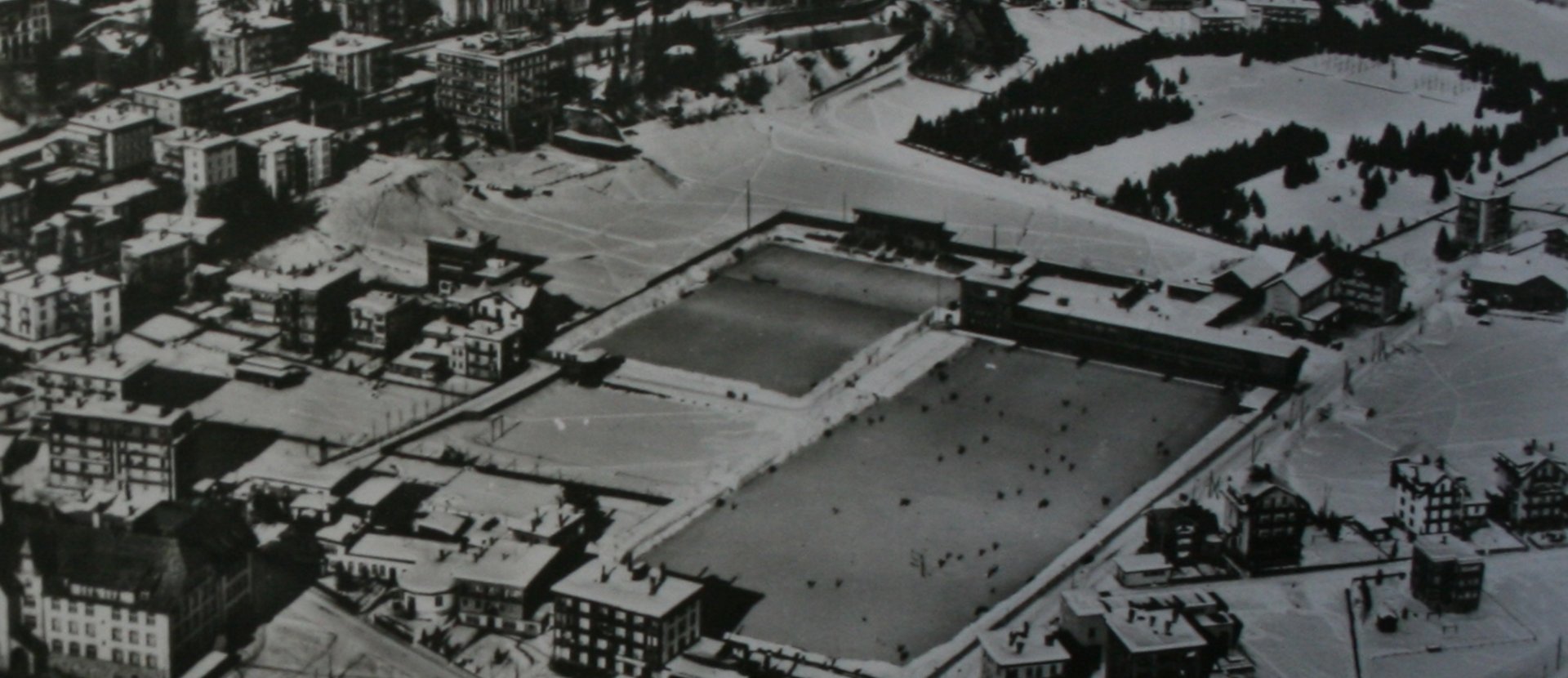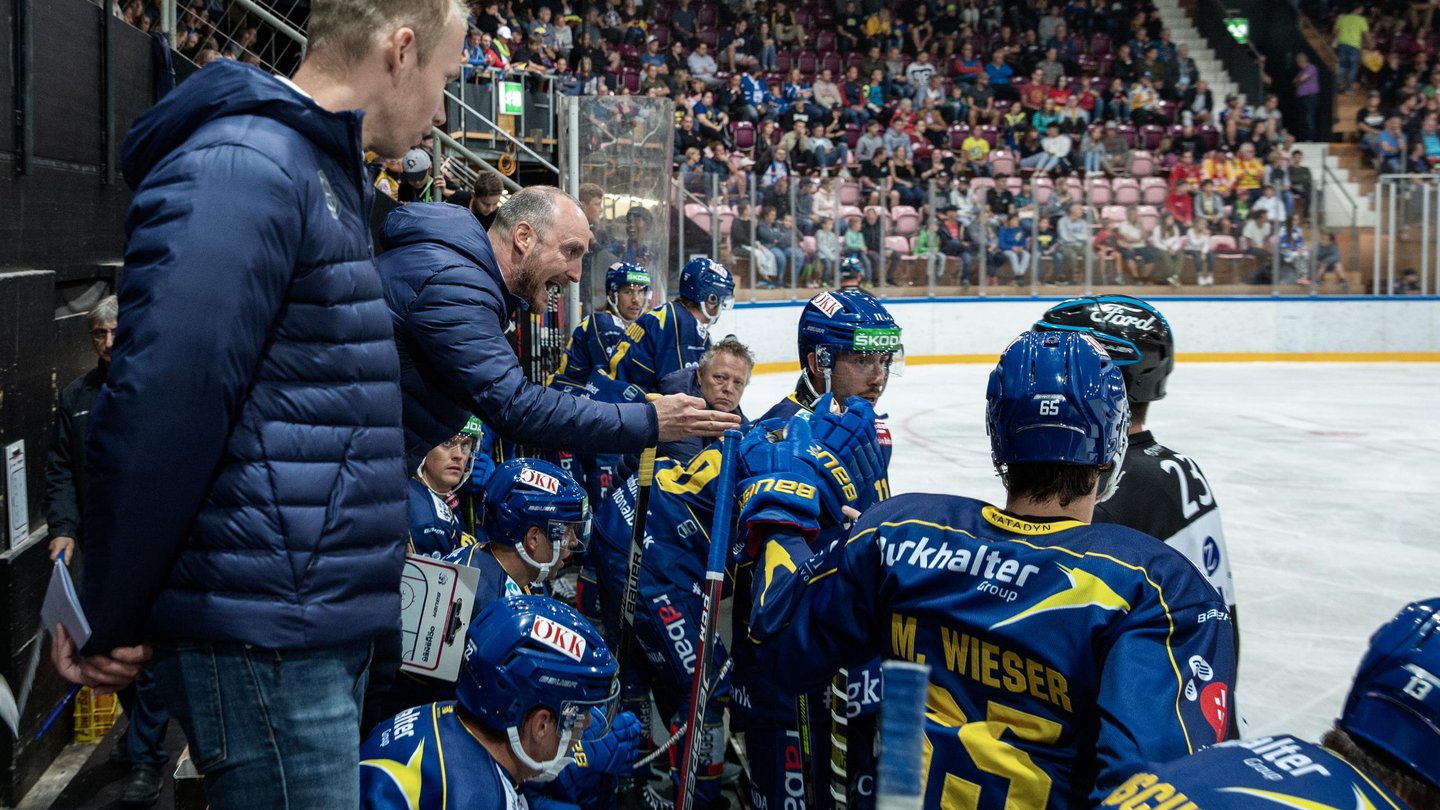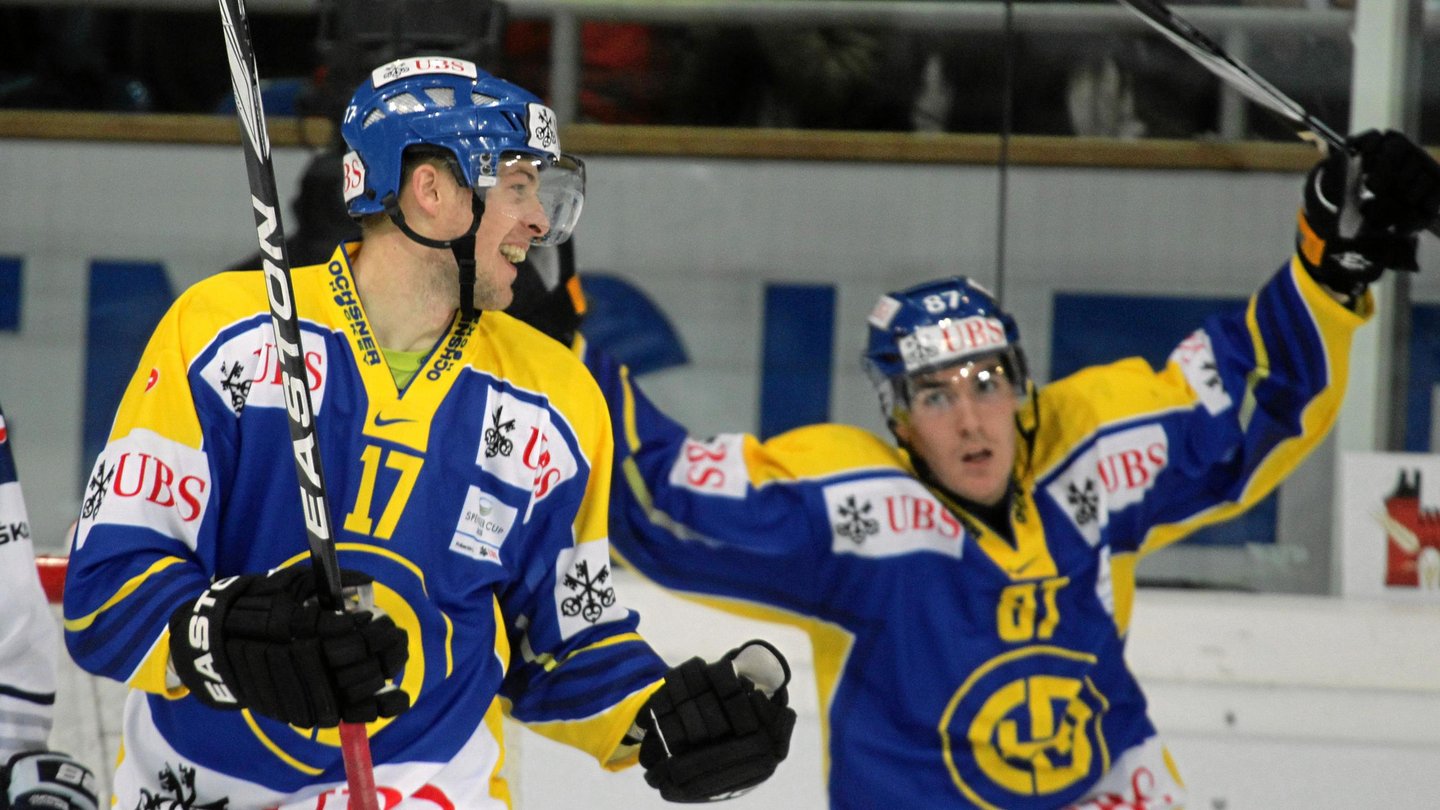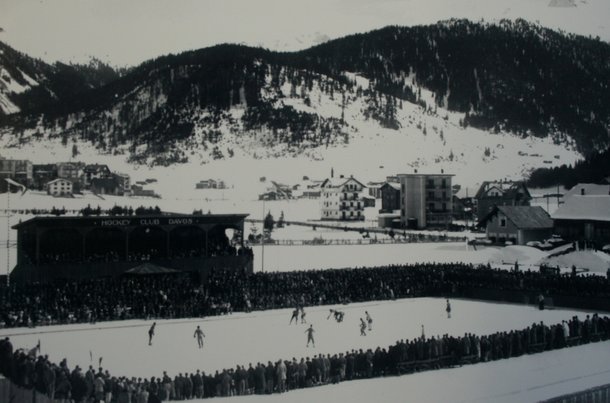A strong trio: HC Davos, Ice Stadium and Spengler Cup
Ice-hockey is omnipresent in Davos. The Swiss record-holding Hockey Club Davos (HCD) has contributed much to this, wearing the blue and yellow of Davos all year round as it tours the various Swiss hockey arenas. The internationally renowned Spengler Cup and the impressive Davos ice stadium are further indicators of the Davos ice hockey tradition.

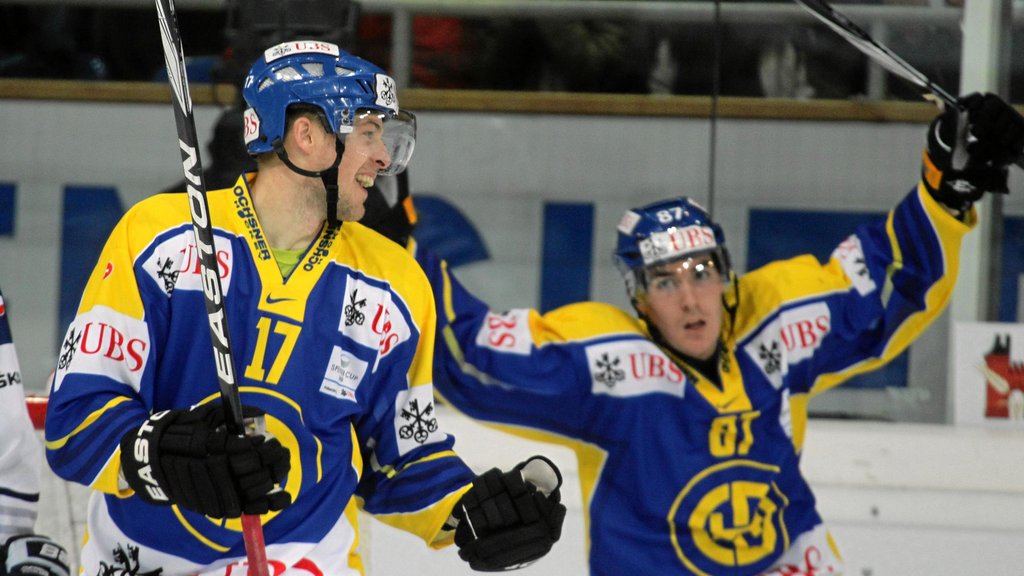
The foundation of today's Hockey Club Davos (HCD) goes back as far as 1918. At that time, Dr. Kurt Wüest took the initiative and founded a club for students and guests . Following its establishment, the young Davos team battled in various matches against St. Moritz. In 1921 the match schedule was dramatically expanded and teams from Zurich and Lausanne became new opponents. The first high point for HC Davos was the visit by Oxford University, a team of Canadians, which the locals lost 22:0.
Record champion with 31 titles
After rejoining the top hockey league in 1993, the club hired the charismatic coach Arno del Curto three years later. Under his leadership, the HCD won six Swiss championship titles, the 31st in the 2014/15 season. del Curto left the crisis-ridden HCD in the middle of the 2018/19 season after 22 successful years. At the end of this unfortunate season, the HCD missed the playoffs for the first time since 1993. Under the leadership of the Latvian coach Harijs Witolinsch, the team managed to keep the league on its own. With head coach Christian Wohlwend, the record-breaking champions have entered a new era in the 2019/20 season.
Davos Ice Stadium
Shortly after the foundation of the HCD in 1921, a separate ice hockey field was built next to the large ice rink. The border of the field consisted of 10 cm high wooden straps behind which the spectators sat on simple benches. For the European Championship in 1926 a grandstand with cloakrooms was built. In 1960 the HCD played on artificial ice for the first time. From 1979 to 1981 the then Kur- und Verkehrsverein built the ice stadium which still exists today. Because of the spectacular roof construction made of wood, the hall was given the nickname "Ice Palace". In 2004 the municipality bought the ice stadium and one year later the north stand was thoroughly renovated. From 2018 to 2021, the Davos Ice Stadium will be extensively renovated and converted.
Spengler Cup
At the end of 1923 Dr. Carl Spengler donated the traveling cup for an international tournament. The competition named after him was intended to strengthen the HCD playfully and to promote international contacts. The Spengler Cup was regarded as the unofficial European Championship in the interwar period. After the Second World War, the team tournament increasingly lost its importance. The tide turned in 1990 with the professionalization of the tournament. From 1993 onwards, the HCD was once again a spectator magnet. The home club celebrated its first victory in 1927 and its 15th Spengler Cup victory in 2011. Today the tournament enjoys a high international reputation. The games of Team Canada are broadcast live on Canadian sports television.
Set up a contact for our phone number
+41 81 415 21 88
Write your question directly via WhatsApp.
Please note: we respond to your questions during opening hours of the tourist office .


